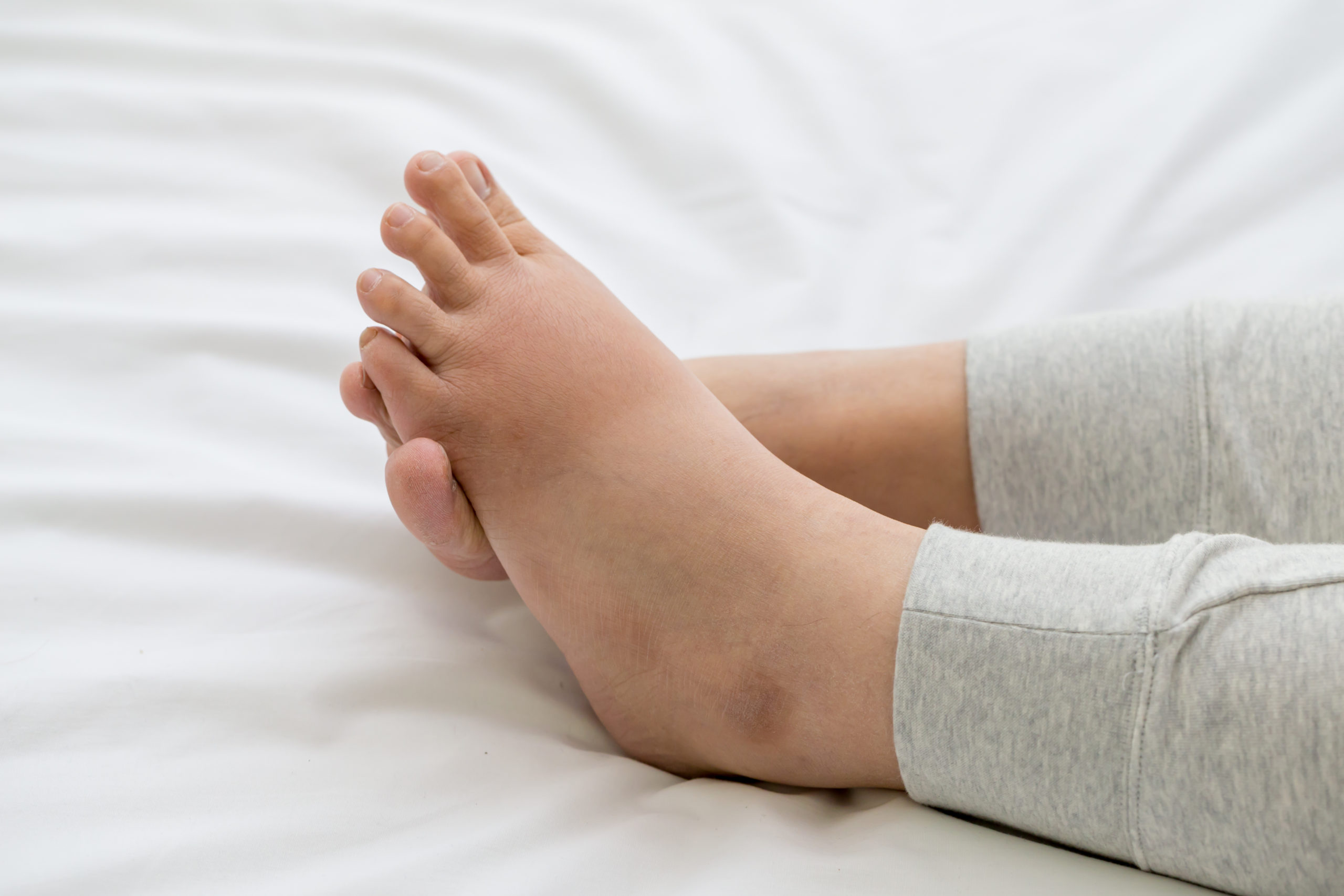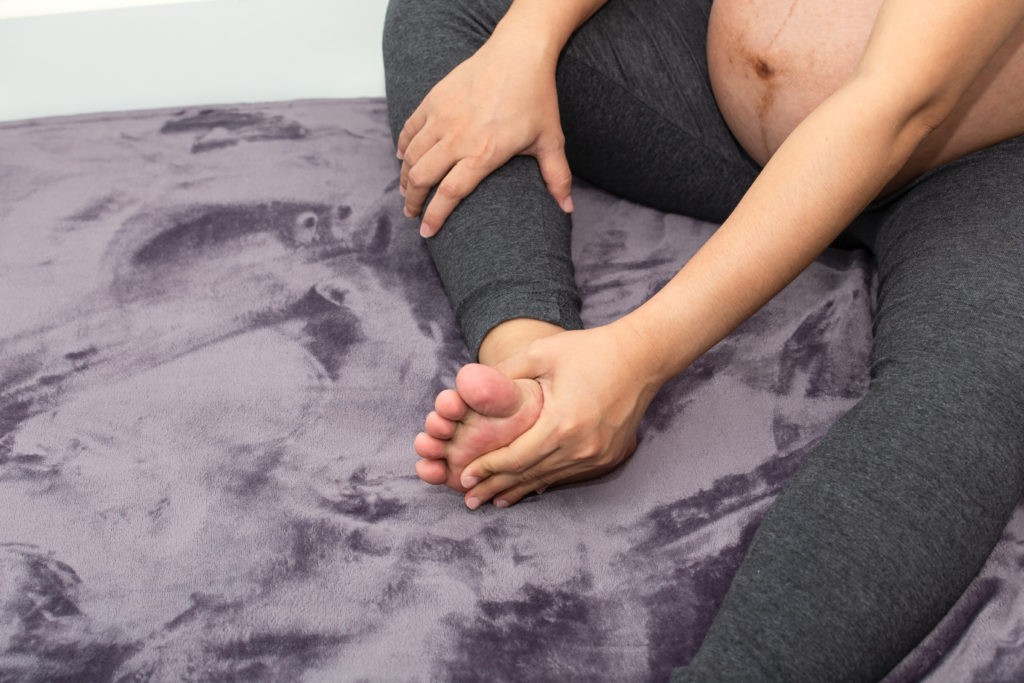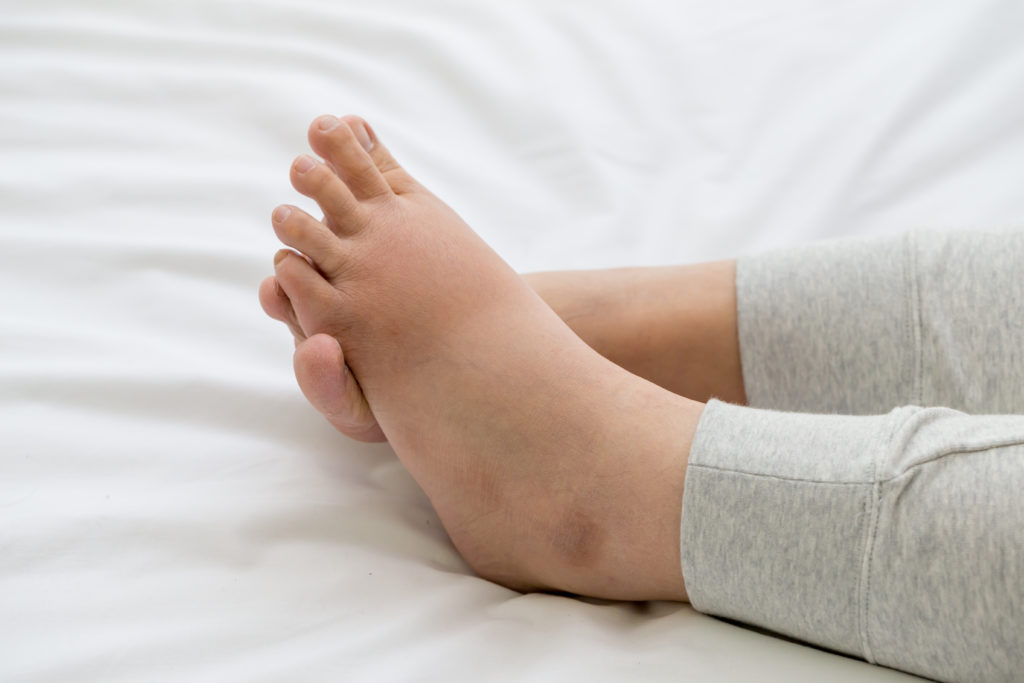

Are you an expectant mum with a sudden onset of foot and leg pains or problems? Research shows that expectant mums tend to have a surge of hip, knee and foot pain during the second and third trimesters, which can linger into the postpartum period.
As a result, our podiatrists here at My FootDr work extensively with new and expectant mums to help manage their foot pain and keep them comfortable on their feet, so they can focus on caring for their little ones without being held back. Here are six common complaints we see in pregnancy and why they occur.
Swollen Feet & Ankles
Bearing up to twice the blood volume in your body during your pregnancy, your body is now asking a lot of your veins which are responsible for moving blood up your legs and back to your heart. Having to work much harder to shift a larger volume of blood compared to what they were used to and up against gravity, the veins can’t always handle this new demand, resulting in swelling in the feet and ankles. This usually occurs from 20 weeks gestation onwards.
Aside from elevating the feet so that your veins can work with gravity and not against it, compression stockings are proven to help prevent and manage lower limb swelling, and are safe to use during pregnancy. See our range here.
Tired, Achy Legs
Feeling exhausted on your feet and legs is definitely a symptom of your pregnancy and with good reason – there is a lot being asked of your body.
- Your centre of gravity and balance shifts forwards, placing new increased demands on muscles that aren’t used to it
- Your joints are more flexible due to the action of a hormone Relaxin, meaning your body is working harder to maintain stability and control with every step
- Your blood volume increases significantly and your body must manage this
- You’re using a large amount of energy to support your growing baby
- Your feet and ankles may be swollen
To help reduce the load, it’s important to keep your feet, legs and joints well supported in the areas they need. This is something our podiatrists assess on a case-by-case basis and create tailored treatment plans to best suit your feet and circumstances.

Foot & Leg Cramps
Up to 30% of pregnant women can experience leg cramps. While the research has not pinpointed a definitive cause for why cramps begin, intensify or become more frequent in pregnancy, their prevalence tends to spike from the second trimester onwards. This could be related to the increased weight that your legs have to support, as well as the rising pressure from the uterus onto surrounding veins, slowing the return of blood to the heart from your legs. The onset of cramps may also be linked to dehydration and changes to the mineral levels in your body.
There is much debate as to the right course of action for managing cramps due to the exact cause being unknown. Research has yielded mixed results with vitamin and mineral supplements, with some studies showing no significant improvement from magnesium, calcium and vitamin B. Due to the increased demand on the feet and legs in pregnancy potentially playing a role, by giving you the right support and offloading pressure on your lower limbs, this may in turn help with cramps, too.
Restless Legs Syndrome: Alongside cramps, up to a quarter of women many also experience Restless Legs Syndrome, which affects your nervous system and creates a strong urge to constantly move your legs. It is thought that it could be linked to changes in hormones during pregnancy.
Arch & Heel Pain
The exponential increase in weight from a growing baby and bump place more stress on the heels and the ligaments and muscles supporting the arches, including the plantar fascia. Thanks to the action of the hormone Relaxin, arches may flatten during pregnancy, meaning your muscles have to step in and work harder to keep you moving step after step. This increases the likelihood of heel and arch pain.
Custom foot orthotics are a great way to keep your feet and arches supported. If you need a cooler option to combat the pregnancy heat, we also have orthotic sandals available that can be purchased online or custom-made for your feet. By reducing the strain on your heels and arch, you can help prevent heel pain from starting or coming back.
Fungal Nail Infections
With your body and immune system working hard throughout pregnancy to support and protect both mum and baby, there may be less attention on fungal nail infections that generally are not dangerous to the expectant mother or her child. This is why pregnant women may be vulnerable to contracting new infections, or existing infections worsening.
We have a number of treatments for fungal nail infections available and our podiatrists will discuss with you the right options for you to help get the results you want while keeping you and your baby safe.
Varicose Veins
These blue, prominent veins on the surface of the skin are more prevalent in pregnancy because of the pressure the veins undergo in transporting greater volumes of blood up the legs against gravity. The damage can occur to the veins themselves or the one-way valves that help prevent blood from going back down the legs. As the valves weaken or become damaged, blood pools in the veins instead of keeping moving up the legs, and your veins may appear bulging or twisted.
Like swelling, compression stockings help promote healthy circulation in the legs and therefore healthy vein function. Staying active and mobile on your feet also helps to promote your lower limb health and general circulation – which is where our podiatrists excel in helping you manage any pains or discomforts so you can stay healthy and active.
Need Help With Foot Problems In Pregnancy?
If you’re finding it difficult to walk or stay comfortable on your feet, our experienced team at My FootDr would love to help. We understand the demands that pregnancy places on your body – and how to help while keeping you and baby safe. Book your appointment online or call us on 1800 FOOT DR


